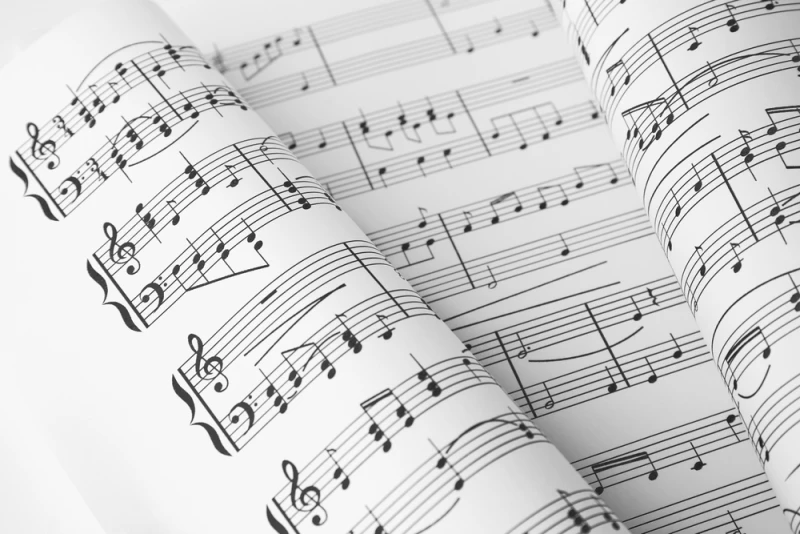Diocese reverses hymn ban in favor of ‘synodal’ selection of sacred music

 null / Credit: New Africa/Shutterstock
null / Credit: New Africa/Shutterstock St. Louis, Mo., Nov 7, 2024 / 17:30 pm (CNA).
Just days after implementing a formal ban on a dozen “doctrinally problematic” hymns, a Missouri bishop has rescinded his original decree, instead opening a yearlong consultation process to determine how sacred music can best be used to encourage active participation in the liturgy.
In his original decree, dated Oct. 24, Bishop W. Shawn McKnight of the Diocese of Jefferson City listed a dozen commonly used contemporary hymns that were to be “absolutely forbidden” in the diocese after Nov. 1.
The list included such songs as “All Are Welcome” by Marty Haugen, “God Has Chosen Me” by Bernadette Farrell, “Led By the Spirit” by Bob Hurd, and “Table of Plenty” by Dan Schutte.
Acknowledging the “spirited discussion” that took place over his decree on social media and in various media outlets, McKnight wrote in a subsequent Nov. 5 decree that “it is now clear that an authentically synodal process of greater consultation did not occur prior to its promulgation.”
Pointing to Pope Francis’ emphasis on “synodality” — the pontiff’s call for the whole Church, including laypeople, to collaboratively seek the guidance of the Holy Spirit through prayer, listening, dialogue, and openness — McKnight wrote that he has ordered a “more comprehensive consultation with the relevant parties within the diocese” related to sacred music.
The original decree was the result of a yearslong research effort led by Father Daniel Merz, a diocesan pastor and chairman of the diocesan liturgical commission, which included consultations with priests ministering in the diocese.
While stating that it is “important to recognize that some hymns in current distribution may not be appropriate for use in Catholic liturgies,” the new decree does not include the specific names of any of the previously banned hymns.
It instead lays out six criteria from the U.S. bishops’ Committee on Doctrine that pastors and liturgical ministers should consider when determining whether a song is suitable for the liturgy.
In particular, “it is vital that we ensure the greatest care be taken to prevent scandal from marring the beautiful celebration of the Eucharist,” McKnight noted.
The new decree does retain a diocesan ban on the use of any music composed by persons who “have been found by his or her diocesan bishop or competent authority to be credibly accused of sexual abuse,” specifically mentioning David Haas, Cesaréo Gabarain, and Ed Conlin.
The new decree, echoing the previous one, also lays out four Mass settings approved for use in the diocese — three in English and one bilingual with Spanish — and with which every parish should “become familiar” for the sake of unity, though parishes are not explicitly obliged to use them.
They include the “Chant Mass,” the “Mass of St. Frances Cabrini” by Kevin Keil, the “Revised Mass of Creation” by Marty Haugen, and for Spanish-speaking congregations, the bilingual “Misa del Pueblo Inmigrante” (“Mass of the Immigrant People”) by Bob Hurd.
‘Moving forward with an open mind and an open heart’
According to a draft story for the Catholic Missourian, shared with CNA by the diocese before publication, McKnight has now tasked the diocesan liturgical commission with gathering feedback from musicians, music ministers, and “everyone else who has a perspective on the music used in liturgies across the diocese” by August 2025.
The liturgical commission will gather feedback and present a report to the diocesan pastoral council and presbyteral council that will offer advice to McKnight, who will then make decisions about liturgical music policies for the diocese.
The process will also involve the leaders of the diocesan chapter of the National Association of Pastoral Musicians, a membership organization for Catholic music ministers.
“It is inspiring to see such passion and enthusiasm about the music that enlivens our Catholic liturgies. Whenever we see this kind of fervor among the faithful, our Church gives us the perfect way to respond — a synodal response,” McKnight said as reported by the Missourian.
“Rather than the faithful being relegated to the outside as commenters on a decision, with their only response being either obedience or disobedience, it is better to invite everyone in our diocese into a discernment process. The Holy Spirit is working through each one of us. When the people of God speak, we have a responsibility to open ourselves to listen, even when that means changing course and trying a different approach.”
Both of McKnight’s decrees rely on a set of 2020 guidelines from the U.S. bishops, “Catholic Hymnody at the Service of the Church,” which lays out the aforementioned criteria for evaluating whether hymns sung at Mass are accurately conveying the truths that Catholics believe.
Emphasizing the formative power of music and its influence on Catholics’ understanding and practice of the faith, that document warns that hymns with inaccurate or incomplete theology can lead to a distorted understanding of key doctrines, particularly the Real Presence of Christ in the Eucharist.
The bishops’ six criteria, which are categories of potential deficiencies with hymns, include: presentation of Eucharistic doctrine; presentation of Trinitarian doctrine; presentation of the doctrine of God and his relation to humans; presentation of a view of the Church that sees her as essentially a human construction; presentation of doctrinally incorrect views of the Jewish people; and presentation of an incorrect Christian anthropology.
“I am excited about moving forward with an open mind and an open heart,” McKnight said, speaking to the Missourian.
“Music is such an important part of who we are as Catholics … I am eager to hear from everyone, in a synodal process of deep listening, as we embark on this process together.”



